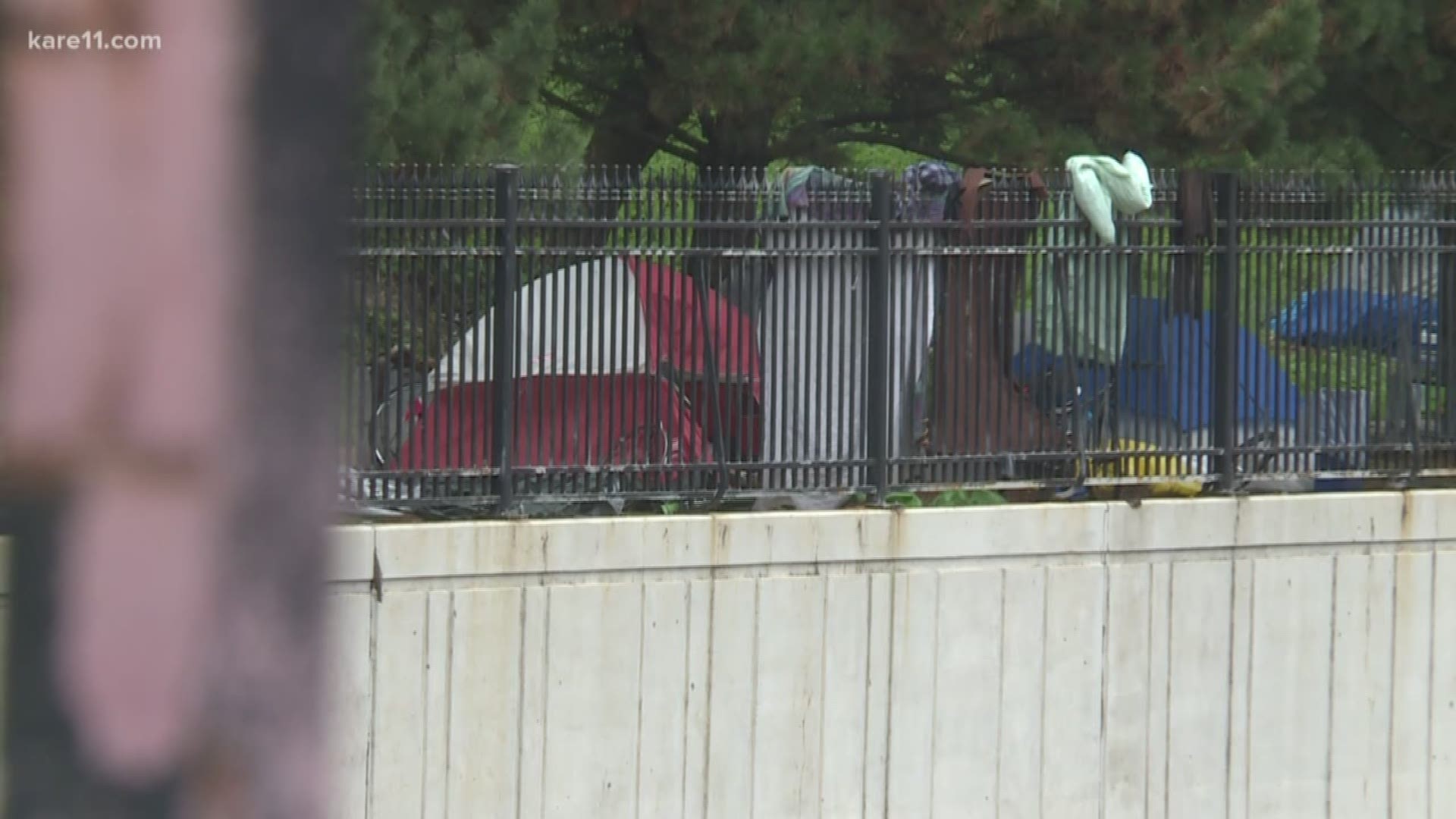ST. PAUL - Every Tuesday afternoon, Todd Feske packs his van with milk, coffee, food, towels, socks and clothes, to name a few items— basically whatever the homeless population of St. Paul might need on any given night.
With a group of volunteers alongside him and a van filled to the rooftop, Feske then makes his rounds across the city.
On this Tuesday, he stops in a wooded, remote area of the city to drop off socks to a man by the same first name, Todd, who lives in a tent because he says nobody will rent to someone with a criminal history. Then Feske drives a few miles to the riverfront on the Mississippi, where he drops off more socks to Columbine, who has lived under a bridge for two years. A few hundred feet away, on a bench near the water, Feske looks for one of his favorites: A Navy veteran named Alex, described by Feske as one of the nicest people you'll ever meet.
"Todd! How you doing my friend," Feske says as he spots Alex sitting on his usual bench near the water. "I missed you!"
Feske hands Alex a pair of winter gloves, and he promises to retrieve AAA batteries for Alex's radio.
"You need anything else?" Feske asks. "You warm enough?"
This is all part of the weekly routine for Feske, who founded the group "Walking With a Purpose" four years ago. Hot or cold, rain or shine, summer or winter, Feske visits as many people as he can each week.
"People are living day-to-day out here, not looking into the future," Feske said. "We're trying to help them understand there is a future."
Feske understands what it's like not to have a home.
In the seventies, he lived on couches, in basements and attics, and even in railroad cars as he drifted toward the West Coast starting at age 15. Like many people in his position, Feske battled drug and alcohol addiction.
It wasn't until a decade later, when he met his wife, that his life turned around.
"It can be done," Feske said. "We just need to show people there's an alternative."
Feske estimates at least 100 to 150 people are homeless in St. Paul each night, at least in his experience.
Recently, a few dozen homeless people have clustered near downtown above I-35E, just feet from the James J. Hill House historical site. Although a much smaller version, it looks strikingly similar to a homeless encampment in South Minneapolis, which has received heavy attention from the media and city leaders.
In St. Paul, the encampment near I-35E is certainly on the city's radar. The Department of Safety and Inspections is taking the lead on the issue, joined by the St. Paul Police Department and other city partners.
"The City of Saint Paul is focused on addressing homelessness long-term," DSI Director Ricardo Cervantes said in a statement to KARE 11. "We are currently exploring intermediate plans with Ramsey County and other community partners to stabilize the site and connect residents to services. Our interest is to protect their health and treat them with dignity as we move forward. We expect to have this actionable intermediate plan in place in the coming days."
As a recovering addict himself, Feske understands how difficult it is to break free from drugs and alcohol.
The man who lives in the woods, named Todd, said he has overcome his addiction to crack but still can't shake alcohol. He said he collects disability and social security, but he also said his felony conviction has prevented him from finding housing.
"Only thing I blame," he says, "is people won't give me another chance."
Feske doesn't try to push people into treatment or services, but he's ready to listen if and when they want to seek help.
He's also working with the University of Minnesota on a "tiny home village," which could give homeless people a small, temporary space until they find affordable housing. The tiny home village could be developed with mental health specialists, mentors and work programs on site.
"There are a lot of people out there already working," Feske said. "They just can't find a place to live."
And that's why Fekse will pack up his van every Tuesday— until there's no work left to do.

